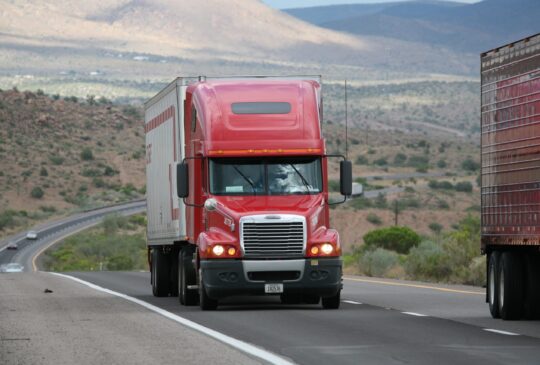LCV (Light Commercial Vehicle)
A Long Combination Vehicle (LCV) is a specialized transport configuration designed to maximize cargo capacity and efficiency in the logistics industry. It typically consists of a powerful tractor unit paired with two or more trailers connected in tandem. LCVs are ideal for long-haul transportation, as they can carry substantial quantities of goods in a single journey, reducing the number of trips required. This not only lowers operational costs but also contributes to environmental sustainability by minimizing fuel consumption and emissions per ton of freight. However, it’s important to note that LCV operations are subject to stringent safety regulations, including specialized training for drivers, to ensure safe and responsible road transport.
LCVs are an essential part of various industries and play a significant role in transportation, logistics, and delivery services. Here’s an overview of LCVs and their key characteristics:
Long Combination Vehicles (LCVs) are a distinctive type of transport configuration known for their key characteristics:
1. Increased Cargo Capacity: LCVs are designed to carry larger quantities of goods compared to standard truck-trailer combinations. Their ability to transport more cargo in a single trip reduces the number of vehicles on the road, easing traffic congestion and lowering transportation costs.
2.Cost Efficiency: LCVs offer cost-effective transportation solutions, particularly for long-haul routes. The reduced need for multiple trips means lower fuel consumption and maintenance costs per unit of freight, making them financially appealing for logistics companies.
3. Environmental Benefits: LCVs contribute to environmental sustainability by reducing carbon emissions per ton of cargo transported. Fewer trips mean fewer vehicles on the road, which can lead to decreased air pollution and a smaller carbon footprint.
4. Specialized Driver Training: Operating LCVs requires specialized training for drivers due to their unique handling characteristics. Drivers need to be well-versed in safely navigating these longer and more complex combinations.
5. Regulatory Compliance: LCV operations are subject to strict regulations and guidelines to ensure road safety. Compliance with weight limits, vehicle dimensions, and safety standards is essential to prevent accidents and maintain road integrity.
6. Advanced Technology: Many LCVs are equipped with advanced technology such as GPS tracking, anti-lock braking systems, and collision avoidance systems to enhance safety and efficiency during transportation.
7. Versatility: LCV configurations can vary depending on regional regulations and specific transport needs. Common types include B-doubles, triples, and turnpike doubles, each designed to meet different requirements.
8. Reduced Congestion:LCVs can help reduce traffic congestion on highways by consolidating freight into fewer vehicles, which can lead to smoother traffic flow and shorter commute times for other motorists.
9. Balancing Axle Load: LCVs are engineered to distribute weight evenly across axles, minimizing wear and tear on road surfaces and infrastructure.
10. Economic Impact: The use of LCVs can have a positive economic impact by improving supply chain efficiency, reducing transportation costs for businesses, and supporting the growth of the logistics industry. In summary, Long Combination Vehicles offer a strategic solution for efficient, cost-effective, and environmentally friendly cargo transportation. Their distinctive characteristics make them a valuable asset in the modern logistics landscape when operated in compliance with safety regulations.
Combining transport execution and transport management services
In summary, Long Combination Vehicles (LCVs) is a specialized transport configuration that increase cargo capacity and efficiency. Typically consisting of powerful tractor unit towing two or more trailers connected in tandem, LCV are ideal for long-haul transportation. They reduce transportation costs by carrying larger quantities of goods in fewer trips, contribution to environmental sustainability with reduced emissions per ton of freight. However, LCV operations required specialized driver training and strict compliance with safety regulations to ensure road safety. LCV play a crucial role in cost-effective and environmentally responsible logistics solutions.
You benefit from our experience in delivering effective solutions to the complex global supply chains of some of the world’s biggest corporations.
You benefit from every innovation, whether it involves a simple extension to our Air and Ocean Freight products, whether it means a development in warehousing.
All of which explains why you’ll find the team of outstanding support at TransCargo ready to apply their passion for solutions in support of your business.


